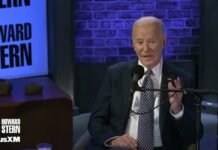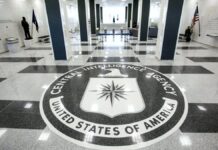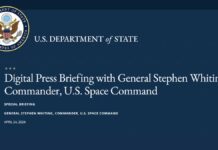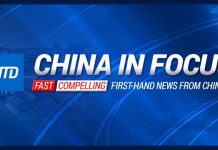The China-Pakistan Economic Corridor is strategic, not economic, in nature.
Under a new set of bilateral trade Memorandum of Understandings (MOUs) worth $10 billion, China received its first shipment of agricultural goods from Pakistan this week. The two countries, infrastructurally linked by Beijing’s China–Pakistan Economic Corridor (CPEC)—the flagship project of the Belt and Road Initiative (BRI)—also started operating this year along the first international road transport route between the two countries.
For economically depressed Pakistan, reeling under a massive debt of about $100 billion, one-third of which is owed to China, the new export-related MOUs with China in agriculture, textile, food, and car parts mean a “robust commitment” to the country’s economic growth, Pakistan’s national newspaper The Dawn reported last week.
Adding to this hope is the first international road transport route (TIR) between Xinjiang’s inland city of Kashgar and Pakistan’s capital city, Islamabad, along which the two allies started operating in late August. The TIR (Transports Internationaux Routiers) system is an international customs transit system.
However, the CPEC is much more than an economic project, a geopolitical analyst with special focus on Pakistan told The Epoch Times in an exclusive interview. Beijing is integrating Islamabad’s economy into its own.
“The China–Pakistan Economic Corridor (CPEC) is a flagship BRI initiative which is strategic, not economic, in nature—China’s companies are not making money in Pakistan; they are integrating the Pakistani economy with China’s and obtaining access to valuable real estate in South Asia that is close to Central Asia and the Gulf,” according to Aparna Pande, a research fellow at The Hudson Institute and the author of multiple books.
Ms. Pande’s doctoral dissertation on Pakistan’s foreign policy was published as “Explaining Pakistan’s Foreign Policy: Escaping India” (Routledge, 2011).
Pakistan, a nation with a strategic geography, was carved out of colonial British India in 1947. It cut through the rich and fertile Indus River basin and held in its international and disputed borders some of the most ancient trade routes linking South Asia with the Middle East on the one hand and with China on the other. Its strategic value increased with the increasing militarization of the region. China’s BRI formally entered the country in 2013, with an investment that rose to $65 billion by 2022.













































